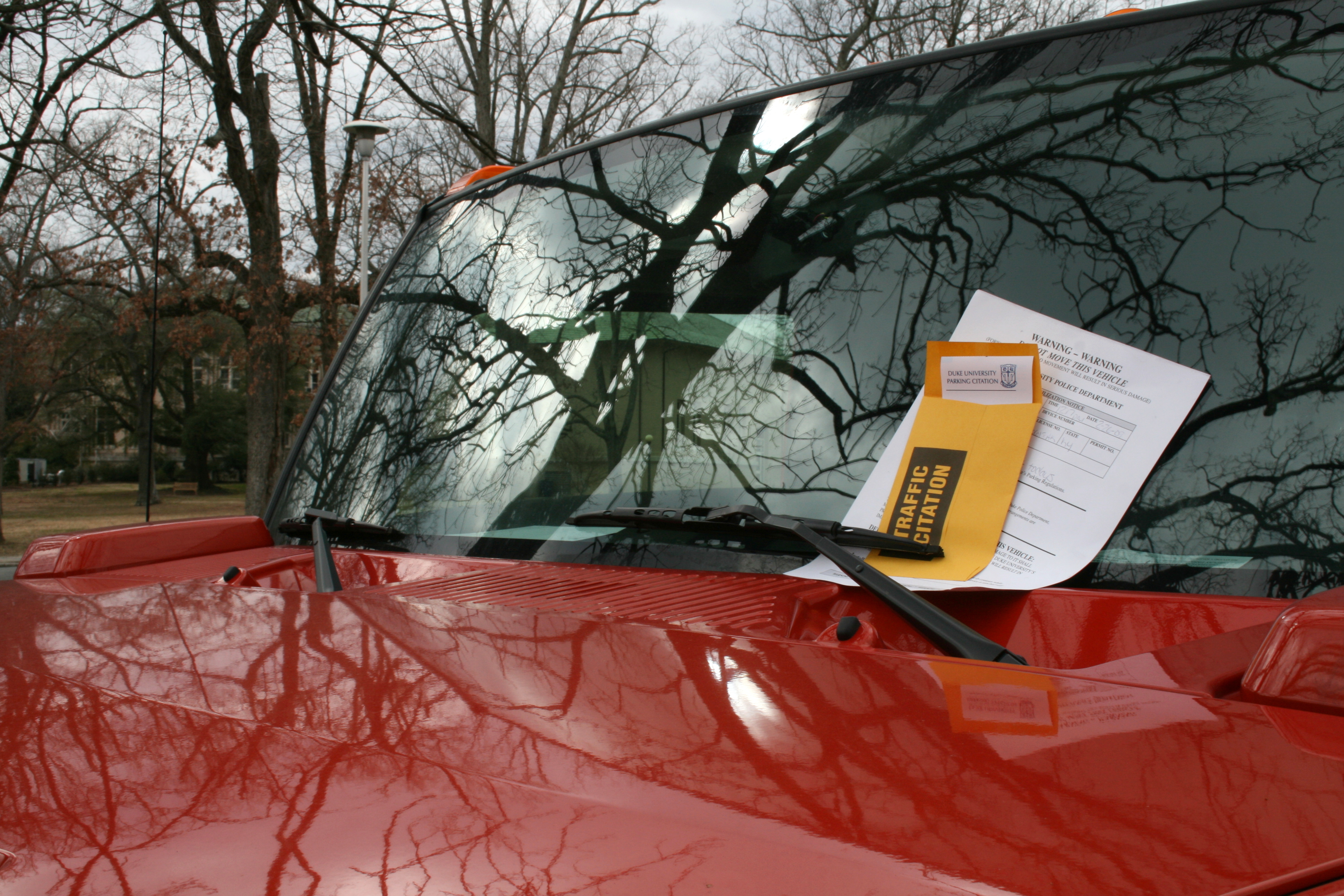The enforcement of parking regulations on university campuses is a vital aspect of maintaining order and ensuring efficient use of limited parking resources. University parking tickets serve as a means of enforcing these regulations, deterring unauthorized parking, and managing parking spaces effectively. While the specific procedures and penalties associated with university parking tickets may vary between institutions, they generally function as legally binding citations for violations such as parking in restricted areas, exceeding time limits, or failing to display proper permits.
Universities often employ parking enforcement officers or utilize automated systems to monitor parking areas and issue tickets to vehicles found in violation of established rules. These tickets typically include information regarding the violation, instructions for payment or appeal, and deadlines for resolution. Failure to address a university parking ticket may result in escalating fines, vehicle immobilization or impoundment, and other consequences.
Understanding the enforcement of university parking tickets is crucial for students, faculty, staff, and visitors to navigate campus parking regulations responsibly and avoid potential penalties. By adhering to parking guidelines and promptly addressing any violations, individuals can contribute to a smoother parking experience and the overall efficiency of university transportation systems.
Don’t pay your parking ticket! (7 reasons why)
What Happens If You Don’t Pay a University Parking Ticket
If you don’t pay a university parking ticket, you may be subject to penalties such as a fine or your vehicle being towed. If you continue to neglect paying your parking tickets, you may end up with a warrant for your arrest. So it’s important to take care of any parking tickets you receive in a timely manner!

Credit: en.wikipedia.org
What Happens If You Don’t Pay a Ut Parking Ticket?
If you don’t pay a University of Texas (UT) parking ticket, several consequences may ensue. Initially, the unpaid ticket may incur additional fees or penalties, escalating the total amount owed. Failure to address the ticket promptly could lead to further enforcement actions, such as vehicle immobilization (booting) or towing. Additionally, UT may place holds on your academic records or transcripts until the outstanding fines are resolved. This means you may be unable to register for classes, graduate, or obtain official transcripts until the parking fines are paid.
Moreover, UT may pursue collections efforts to recover unpaid fines, potentially impacting your credit score and resulting in additional fees. Therefore, it’s essential to address UT parking tickets promptly by either paying the fine or appealing the citation if you believe it was issued unfairly. Ignoring the ticket can lead to further complications and financial repercussions in the long run.
What Happens If You Don’t Pay a Ucla Parking Ticket?
If you don’t pay a UCLA parking ticket, several consequences may occur. Initially, the unpaid ticket may result in late fees or penalties being added to the original fine amount. Failure to address the ticket promptly could lead to further enforcement actions, such as vehicle immobilization (booting) or towing.
Additionally, unpaid parking tickets can escalate to outstanding debts owed to the university, which may result in consequences such as holds being placed on your academic records, transcripts, or registration for classes. This means that you may be unable to register for future classes, graduate, or receive official transcripts until the outstanding fines are resolved. Furthermore, UCLA may pursue collections efforts to recover unpaid fines, which could impact your credit score and result in additional fees. Therefore, it’s crucial to address UCLA parking tickets promptly by either paying the fine or appealing the citation if you believe it was issued in error.

How Much is an Austin Parking Ticket?
If you’ve ever gotten a parking ticket in Austin, you know they’re not cheap. The average parking ticket in Austin is $30, but if you park in a handicapped spot or in a fire lane, you’re looking at a $200 fine. If you get five or more tickets within a year, your car will be towed and impounded, which can cost upwards of $500.
So how do you avoid getting an expensive parking ticket? First, familiarize yourself with the city’s parking rules and regulations. Second, always park in a designated spot and make sure your car is properly registered and displays the correct permit. Lastly, don’t forget to feed the meter. If you follow these simple tips, you should be able to avoid costly parking tickets in Austin.
How Do I Pay My Ut Parking Ticket?
To pay your University of Texas (UT) parking ticket, you can follow a straightforward process offered by the university’s parking services department. Here are the typical steps:
- Access the UT Parking Services Website: Visit the official website of UT’s parking services department. This website typically provides information about parking regulations, citation details, and options for paying fines.
- Log into Your Account: If you have received a parking citation, you may need to log into your account on the UT parking services website. Use your UT credentials or the citation number and license plate information to access your account.
- View and Select the Citation: Once logged in, navigate to the section of the website where you can view your parking citations. Locate the citation you wish to pay among the list of violations.
- Choose Payment Method: UT parking services usually offer various payment methods, such as credit/debit card or electronic funds transfer. Select your preferred payment method.
- Enter Payment Information: If paying by credit/debit card or electronic funds transfer, enter the necessary payment information, including card details or bank account information.
- Submit Payment: After entering the payment information, review the details to ensure accuracy, then proceed to submit your payment. Once the payment is processed successfully, you should receive a confirmation of payment.
- Confirmation and Receipt: After completing the payment process, UT’s parking services department typically confirms payment. You may also receive a receipt via email or download one from your account on the parking services website.
Following these steps should enable you to pay your UT parking ticket efficiently and ensure that the citation is resolved promptly. If you encounter any issues or have questions about the payment process, you can contact UT’s parking services department for assistance.
Frequently Asked Questions (FAQs)
What happens if I ignore a university parking ticket?
Ignoring a university parking ticket can lead to escalating fines, vehicle immobilization, or even towing. It’s essential to address any parking violations promptly to avoid further consequences.
Can I appeal a university parking ticket if I believe it was issued unfairly?
Yes, most universities provide an appeals process for disputing parking tickets. You can typically submit an appeal with supporting evidence to contest the citation.
How do I pay for a university parking ticket?
Payment methods for university parking tickets vary but often include online payment portals, in-person payment at designated offices, or by mail. Instructions for payment are typically provided on the ticket itself.
Are university parking tickets considered legal citations?
Yes, university parking tickets are legally binding citations for violations of campus parking regulations. Failure to address them can result in further penalties or enforcement actions.
Do parking permits exempt me from receiving university parking tickets?
Not necessarily. While parking permits grant authorization to park in specific areas, they must be displayed according to regulations. Failure to display a permit properly or parking in restricted areas can still result in receiving a parking ticket.
Conclusion
University parking tickets serve as a necessary tool for enforcing parking regulations on campus. Through the issuance of citations and the imposition of penalties, universities ensure compliance with parking rules, maintain order in parking facilities, and optimize the use of available parking spaces. Members of the university community and visitors need to understand and respect these regulations to avoid potential fines and penalties. By adhering to parking guidelines, individuals contribute to a safer and more organized campus environment where everyone has fair access to parking facilities. Universities may employ various enforcement methods, including parking enforcement officers and automated systems, to uphold these regulations effectively. Overall, the enforcement of university parking tickets plays a crucial role in promoting efficient transportation systems and enhancing the overall campus experience for all stakeholders.
